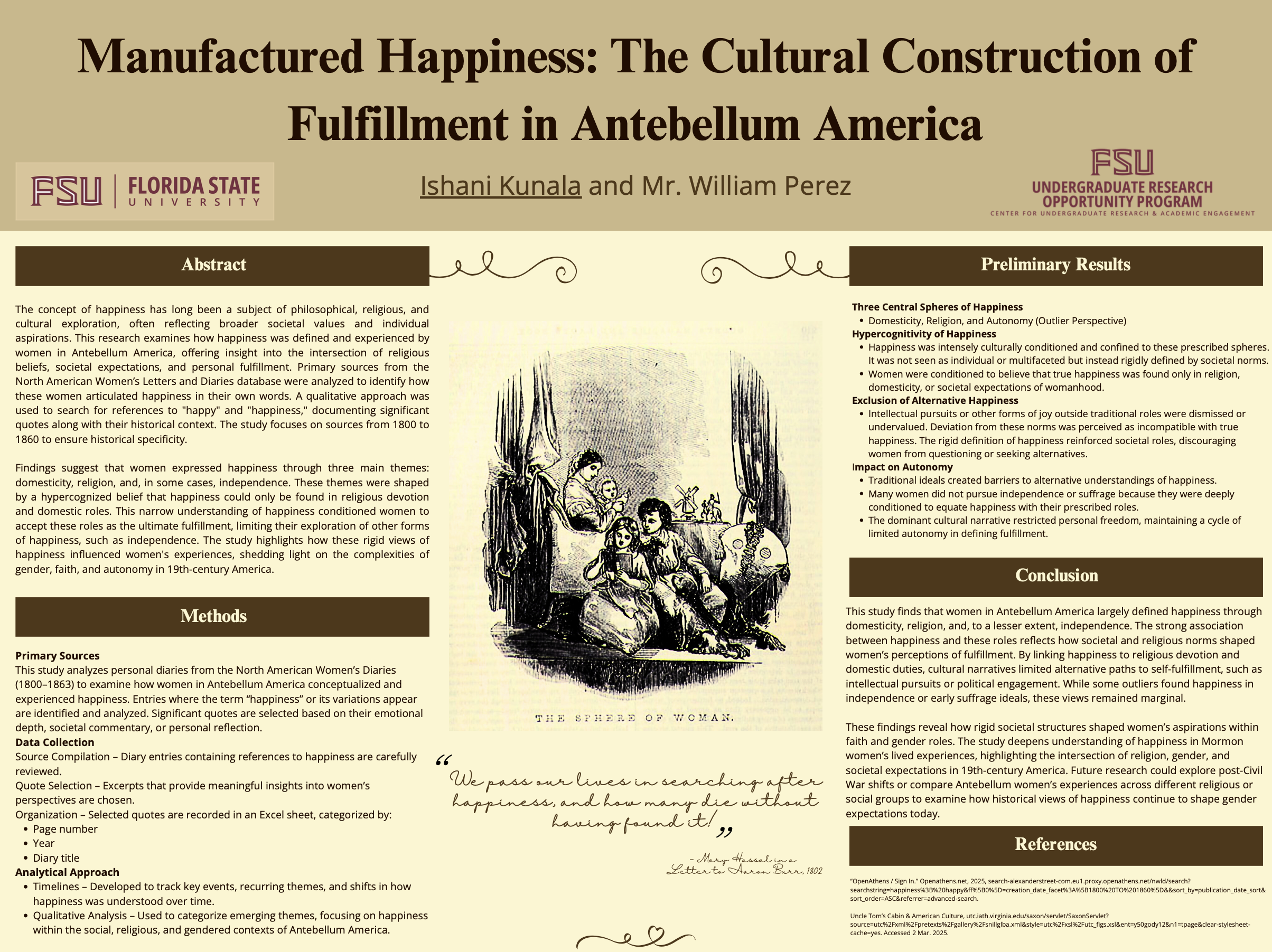Research Symposium
25th annual Undergraduate Research Symposium, April 1, 2025
Ishani Kunala Poster Session 1: 9:30 am - 10:30 am/ Poster #111

BIO
Ishani is a first-year Presidential Scholar from Pembroke Pines, FL, pursuing a dual degree in Political Science and Finance with a minor in French. She is on the pre-law track with aspirations to attend law school abroad. Ishani is passionate about leadership, community engagement, and advocacy, which she actively pursues through her involvement on campus. She serves as the Vice President of the Broward, Landis, and Gilchrist residence hall complexes through IRHC for the 2024-2025 school year. Additionally, she is a member of the Presidential Scholars Outreach Board and Phi Alpha Delta, FSU’s pre-law fraternity, where she connects with fellow students interested in law and professional development.
Manufactured Happiness: The Cultural Construction of Fulfillment in Antebellum America
Authors: Ishani Kunala, William PerezStudent Major: Political Science, Finance
Mentor: William Perez
Mentor's Department: Religion Mentor's College: College of Arts and Sciences Co-Presenters:
Abstract
The concept of happiness has long been a subject of philosophical, religious, and
cultural exploration, often reflecting broader societal values and individual
aspirations. This research examines how happiness was defined and experienced by
women in Antebellum America, offering insight into the intersection of religious
beliefs, societal expectations, and personal fulfillment. Primary sources from the
North American Women’s Letters and Diaries database were analyzed to identify how
these women articulated happiness in their own words. A qualitative approach was
used to search for references to "happy" and "happiness," documenting significant
quotes along with their historical context. The study focuses on sources from 1800 to
1860 to ensure historical specificity.
Findings suggest that women expressed happiness through three main themes:
domesticity, religion, and, in some cases, independence. These themes were shaped
by a hypercognized belief that happiness could only be found in religious devotion
and domestic roles. This narrow understanding of happiness conditioned women to
accept these roles as the ultimate fulfillment, limiting their exploration of other forms
of happiness, such as independence. The study highlights how these rigid views of
happiness influenced women's experiences, shedding light on the complexities of
gender, faith, and autonomy in 19th-century America.
Keywords: Happiness Women Antebellum America Female

